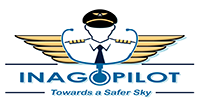Salam sehat INAGO-er(s),
PENTING
Kuesioner ini disebut Cockpit Management Attitudes Questionnaire (CMAQ) yang dapat digunakan untuk menilai input pada organisasi terhadap keberhasilan program CRM dalam mengubah sikap.
Sebelum menggunakannya, INAGO-er(s) perlu memahami beberapa hal di bawah ini:
- Kuesioner ini bersifat self-reporting dan terbatas, kami menghargai kerahasiaan data sehingga tidak diteruskan kepada pihak manapun.
- Skala kuesioner terdiri dari 3 kuantifikasi sikap dalam koordinasi kru, manajemen kelola kokpit, dan kapabilitas personal.
- Jawablah setiap pernyataan dengan tingkat persepsi yang dirasakan.
- Skor akhir yang didapat akan ditampilkan setelah klik submit.
- Mohon kebijaksanaan dalam menanggapi Skor yang didapat !.
- Skor yang didapat, membantu untuk menilai
- prediktor pengukuran kinerja pada pengoperasian pesawat udara dan
- menunjukkan hubungan yang kuat antara input (kepribadian) dan output (sikap)
- Hasil dapat diunduh untuk kepentingan tindak lanjut.
- Kuesioner ini digunakan untuk penapisan, sehingga sangat disarankan untuk konsultasi dengan dokter/ psikolog INAGO-ers ya…
Terima kasih, INAGO-ers sudah turut berpartisipasi dalam skring prediktor pengukuran kinerja pada pengoperasian pesawat udara dan predictor keberhasilan program CRM!
